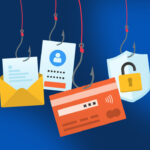Phone Security on iPhone: Comprehensive Guide to Protecting Your Device
In today’s digital age, phone security is a paramount concern, especially for iPhone users who store a significant amount of personal and sensitive data on their devices. This comprehensive guide aims to arm you with practical tips and the latest tools to enhance the security of your iPhone, ensuring your information remains private and secure.
Understanding iPhone Security Features
The iPhone is equipped with several built-in security features that are designed to protect your personal information and privacy. From Face ID and Touch ID to encryption and Find My iPhone, Apple has integrated robust security measures to help users safeguard their devices against unauthorized access and data breaches.
To maximize these features, always ensure your device is running the latest version of iOS. Regular updates not only introduce new features but also contain important security patches that protect against emerging threats.
Enhancing Privacy Settings
Privacy settings on your iPhone can be customized to further secure your personal information. It’s vital to review permissions for each app, restricting access to your location, contacts, and photos unless absolutely necessary. Additionally, use Safari’s privacy and security settings to prevent websites from tracking your browsing activity and safeguard your online presence.
Securing Communications with Encrypted Messaging Apps
To secure your communications, opt for messaging apps that offer end-to-end encryption. This means that only you and the person you’re communicating with can read what is sent, and nobody in between, not even the service provider, can access your messages.
Public Wi-Fi and VPN Use
When connecting to public Wi-Fi, your device is more vulnerable to security threats. To protect your data, consider using a Virtual Private Network (VPN), which encrypts your internet connection and shields your browsing activity from prying eyes.
Anti-Virus and Anti-Malware Software
While iPhones are less susceptible to viruses compared to other platforms, it’s still advisable to use anti-virus and anti-malware software. These tools provide an extra layer of protection by detecting and removing harmful software that may compromise your device’s performance and security.
Regular Backups
Regular backups are crucial for data security. Use iCloud or iTunes to create backups of your iPhone data. This not only protects your information from loss due to hardware failure but also allows for easy recovery in case your device is lost or stolen.
Use Strong and Unique Passwords
Ensure that your Apple ID and other critical accounts are secured with strong, unique passwords. Consider using a password manager to generate and store complex passwords, reducing the risk of password-related security breaches.
Two-Factor Authentication (2FA)
Activating two-factor authentication adds an extra layer of security to your Apple ID and other sensitive accounts. With 2FA, accessing your account requires not only your password but also a verification code sent to a trusted device, significantly reducing the risk of unauthorized access.
Beware of Phishing Attacks
Stay vigilant against phishing attempts that often come in the form of emails or messages trying to trick you into revealing personal information. Always verify the source before clicking on links or downloading attachments, even if they appear to come from known contacts.
YouMail App: A Top Tool for Phone Security
For those seeking an advanced tool to enhance their iPhone’s security, the YouMail App stands out. This app not only offers robust call protection features, blocking unwanted and potentially harmful calls, but also provides voicemail security and phishing protection, making it a comprehensive solution for maintaining your phone’s integrity and security.
Conclusion
By following these tips and utilizing reliable security apps like YouMail, you can significantly enhance the security of your iPhone. Protecting your phone from external threats and safeguarding your personal information should be a priority for all iPhone users.





